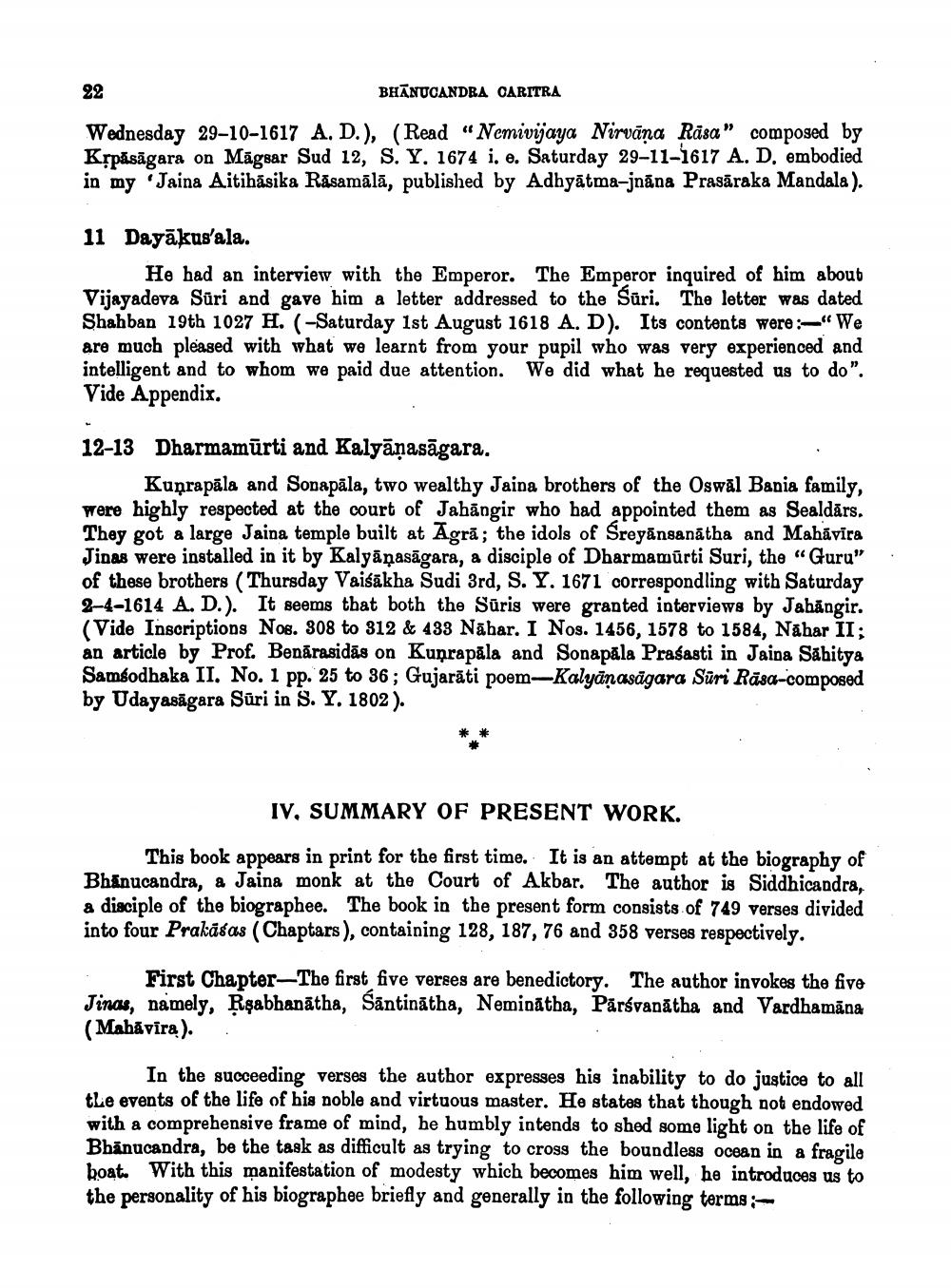________________
22
BHĀNUCANDRA CARITRA
Wednesday 29-10-1617 A.D.), (Read “Nemivijaya Nirvana Räsa" composed by Kopāsāgara on Māgsar Sud 12, S. Y. 1674 i. e. Saturday 29-11-1617 A. D. embodied in my Jaina Aitibásika Rasamālā, published by Adhyātma-nāna Prasāraka Mandala).
11 Dayākus'ala.
He had an interview with the Emperor. The Emperor inquired of him about Vijayadeva Sūri and gave him a letter addressed to the Sūri. The letter was dated Shahban 19th 1027 H. (-Saturday 1st August 1618 A. D). Its contents were :-"We are much pleased with what we learnt from your pupil who was very experienced and intelligent and to whom we paid due attention. We did what he requested us to do". Vide Appendix.
12-13 Dharmamūrti and Kalyānasāgara.
Kuņrapāla and Sopapāla, two wealthy Jaina brothers of the Oswal Bania family, were highly respected at the court of Jahangir who had appointed them as Sealdārs. They got a large Jaina temple built at Agră; the idols of Sreyānsanātha and Mahāvīra Jinas were installed in it by Kalyāņasāgara, a disciple of Dharmamūrti Suri, the “Guru" of these brothers (Thursday Vaišākha Sudi 3rd, S. Y. 1671 correspondling with Saturday 2-4-1614 A. D.). It seems that both the Sūris were granted interviews by Jabängir. (Vide Inscriptions Nos. 308 to 312 & 433 Nābar. I Nos. 1456, 1578 to 1584, Nahar II; an article by Prof. Benārasidās on Kuņrapāla and Sonapala Prasasti in Jaina Sahitya Samsodhaka II, No. 1 pp. 25 to 36; Gujarāti poem-Kalyānasāgara Suri Rāsa-composed by Udayasāgara Sūri in S. Y. 1802).
IV, SUMMARY OF PRESENT WORK.
This book appears in print for the first time. It is an attempt at the biography of Bhanucandra, a Jaina monk at the Court of Akbar. The author is Siddhicandra, a disciple of the biographer. The book in the present form consists of 749 verses divided into four Prakasas (Chaptars), containing 128, 187, 76 and 358 verses respectively.
. First Chapter-The first five verses are benedictory. The author invokes the five Jinas, namely, Rşabhanātha, Santinātha, Neminātha, Pārsvanātha and Vardhamana (Mahāvira).
In the succeeding verses the author expresses his inability to do justice to all the events of the life of his noble and virtuous master. He states that though not endowed with a comprehensive frame of mind, he humbly intends to shed some light on the life of Bhānucandra, be the task as difficult as trying to cross the boundless ocean in a fragile boat. With this manifestation of modesty which becomes him well, he introduces us to the personality of his biographee briefly and generally in the following terms ;




